Faculty
Quick listing. Click on the name to take you to the entry.
David Coltman
Professor and Chair
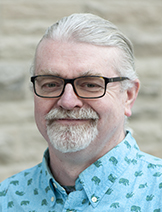 Contact Information
Contact Information Office: BGS 2025E
Research Office: BGS 2064
Lab: BGS 2054
Phone: (519) 661-2111 x 80035
Lab Phone: (519) 661-2111 x 85530
Fax: (519) 661-3813
Email: dcoltman@uwo.ca
Chair: biochair@uwo.ca
Conservation Genetics and Ecological Genomics in Wildlife
Research WebsiteResearch and Teaching
My research is focused on the maintenance and adaptive significance of genetic variation in the wild. I am interested in testing evolutionary theory in natural populations using longitudinal data and pedigrees, and also in applying genetical methods to problems in conservation and wildlife management. This is possible using molecular markers such as microsatellites and SNPs as tools to facilitate quantitative and population genetic analyses, as well as QTL mapping. My research interests therefore include ecology, quantitative and population genetics, and genomics.
Degrees and Institutions
- BSc Queen's University
- PhD Dalhousie University
- PDF Univeristy of Edinburgh
Teaching
- Details to come.
Juno Coltman
Executive Assistant to the Chair (advanced training)
 Contact Information
Contact Information Office: BGS 2025E
Research Office: BGS 2064
Lab?: Nope, Golden Retriever – Great Pyrenees mix
Phone: (519) 661-2111 x 80035
Lab Phone: (519) 661-2111 x 85530
Fax: (519) 661-3813
Email care of: dcoltman@uwo.ca
Mood stabiliization
Research WebsiteUnder construction.
Research and Teaching
Woof, woof.
Degrees and Institutions
- The school of life
Teaching
- Details to come.
Michelle Belton
Assistant Professor
Teaching
Degrees and Institutions
- PhD Zoology, The University of Western Ontario, London, Ontario, Canada
- Hon. BSc Genetics, The University of Western Ontario, London, Ontario, Canada
Teaching
- Biology 2290 F/G – Scientific Methods in Biology
Mark Bernards
Professor
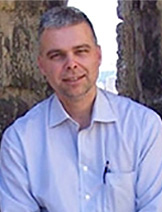 Contact Information
Contact Information Office: NCB 402
Phone: (519) 661-2111 x 86477
Fax: (519) 661-3935
Email: bernards@uwo.ca
Plant Secondary Metabolism
Research WebsiteResearch and Teaching
My research program is based on the study of plant secondary metabolites or phytochemicals. I am interested in how plants use phytochemicals to interact with other organisms or defend themselves against environmental factors such as wounding and pathogen attack. We spend a lot of time isolating and analysing phytochemicals using various chromatographic techniques and bioassays. Our research activities can be divided into two categories: 1) Biosynthesis of Suberin and 2) Chemical Ecology of Phytochemicals. Each is briefly described below.
1) Biosynthesis of Suberin
In response to wounding and other environmental stresses, the cells of plants exposed to the stress may be induced to form suberin. Suberin is the name given to a specific cell wall modification deposited in periderm, wound periderm, and endo- and exodermal cells that involves the biosynthesis of a poly(phenolic) domain (SPPD) within the cell wall as well as a poly(aliphatic) domain (SPAD) between the plasma membrane and the cell wall. The structure of suberin has undergone revision as new information about its chemical composition is revealed. We recently proposed a new structural model for potato tuber suberin, based on our studies as well as extensive literature reports. We have also developed a model to help understand the macromolecular assembly of the SPPD and have two current projects testing it. More recently, we have initiated a metabolite profiling project to better understand the changes in both primary and secondary metabolism that occur during suberization.
2) Chemical Ecology of Phytochemicals
Many phytochemicals are biologically active and play a direct role in the interaction between a plant and its environment. In my lab we are investigating the potential of ginsenosides to act as allelochemicals and how different soilborne fungi respond to them in vitro.
Degrees and Institutions
- BSc (Agriculture) University of Guelph, 1985
- PhD (Biochemistry) University of Guelph, 1991
- PDF, Washington State University, Institute for Biological Chemistry, 1991-93
- Assistant Professor, Program in Chemistry, University of Northern BC, 1993-1998
- At Western since 1998
Teaching
- Biology 2601A - Organismal Physiology
Alice Boyle
Professor
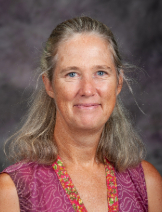 Contact Information
Contact Information Office: Collip 107
Lab: BGS 2056
Office Phone: (519) 661-2111 x (no extension at this time)
Lab Phone: (519) 661-2111 x 86773
Email: aboyle7@uwo.ca
Migration and dispersal, avian ecology, tropical biology, grassland bird conservation, consequences of rain for endotherms
Research WebsiteResearch and Teaching
My lab seeks to answer questions about why animals—usually birds—do the things that they do in the wild. We aim to understand the ultimate ecological factors that have led to the evolution of key behaviours using methods ranging from experiments and physiological tools to intensive population-level studies to taxonomically broad comparative studies. My core research program began in the Neotropics with work testing alternative hypotheses explaining altitudinal migration. After moving to temperate grasslands, I grew another major branch of my research program, aiming to determine why threatened grassland birds disperse so much throughout their lives. Alongside this work, we began to formulate and test new ideas explaining how, when, and why birds and other endotherms respond positively or negatively to temporal variation in rainfall. Elements of all three of these major themes continue to motivate our work, combined with research designed to provide on-the-ground information to reverse the declines of threatened species.
Degrees and Institutions
- PhD (Ecology and Evolutionary Biology), University of Arizona, 2006
Teaching
- Biology 3435G – Animal Ecology
Brian Branfireun
Professor
Canada Research Chair in Environment and Sustainability
Cross-appointed with Earth Sciences and Geography
Ecohydrology, biogeochemistry and wetland ecosystem science
Research WebsiteResearch and Teaching
Taking an interdisciplinary environmental science approach, Dr. Branfireun and his research group seek to understand the bidirectional nature of hydrological – ecological interactions at a range of scales. They direct their efforts toward ecosystems that are particularly sensitive to the impacts of natural and human-induced environmental change. Dr. Branfireun is involved in projects studying the hydrology, ecology and biogeochemistry of wetland-dominated environments from the Canadian sub-arctic to the sub-tropics of Mexico. Dr. Branfireun's research program is strongly field oriented, using the latest approaches to the measurement of environmental processes. He also directs a modern laboratory facility in the BIOTRON Institute for Experimental Climate Change Research at Western University for the study of speciated trace metals in the environment such as mercury and arsenic.
Degrees and Institutions
- PhD, McGill University
Teaching
- Environmental Sciences 3350G: Methods and Techniques in Environmental Science
Robert Buchkowski
Assistant Professor
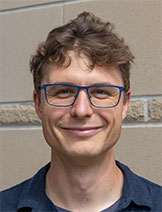 Contact Information
Contact Information Office: BGS 2074
Lab: To come
Phone: (519) 661-2111 x 88969
Fax: (519) 661-3813
Email: rbuchkow@uwo.ca
Global change biology, ecosystem modelling, ecological stoichiometry, soil ecology, conservation biology
Research WebsiteResearch and Teaching
The goal of our research program is to predict changes in the cycling of carbon and nitrogen in ecosystems by understanding how animals, plants, and microorganisms respond to global change, management actions, and other disturbances.
Our lab makes these predictions using computational models that we improve with new data from field observations and experiments.
When we are not working on carbon and nitrogen cycling, we also develop species distribution models, especially for species-at-risk.
Degrees and Institutions
- PDF, Western University 2020
- PhD, Yale University 2019
- MESc, Yale University 2014
- HBSc, Lakehead University 2012
Teaching
- To come
Robert Cumming
Associate Professor
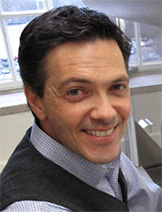 Contact Information
Contact Information Office: BGS 3078
Lab: BGS 3061
Phone (Office): (519) 661-2111 x 81578
Phone (Lab): (519) 661-2111 x 81579
Fax: (519) 661-3935
Email: rcummin5@uwo.ca
Brain Metabolism and Aging
Research WebsiteResearch and Teaching
Optimizing Brain Metabolism for Successful Aging
The Cumming laboratory studies the changes in brain metabolism and antioxidant defence that occur with age. We are trying to understand how age-dependent alterations in brain metabolism affect memory and contribute to neurodegenerative disorders, including Alzheimer’s disease.
We currently are using a variety of biochemical, genetic, microscopic and neuroimaging techniques to examine aerobic glycolysis and antioxidant response in both cell culture and animal models of aging and neurodegenerative diseases.
Degrees and Institutions
- PhD (Molecular and Medical Genetics), University of Toronto, 2001
- Post-Doctoral Fellowship (Neurobiology), The Salk Institute for Biological Studies, 2001-2007
Teaching
- Biology 2382B – Cell Biology
- Biology 4355F – The Biology of Aging
Sashko Damjanovski
Associate Professor
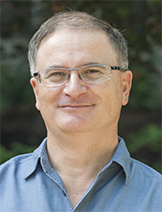 Contact Information
Contact Information Office: BGS 3053b
Lab: BGS 3053
Phone: (519) 661-2111 x 84704
Fax: (519) 661-3935
Email: sdamjano@uwo.ca
Developmental Biology - Extracellular Matrix Remodelling science
Research WebsiteResearch and Teaching
Extracellular matrix remodelling in Developing Xenopus laevis
Healthy tissue function requires proper cell adhesion, and this adhesion is in part provided by proteins collectively known as the extracellular matrix (ECM). The ECM can be cut and remodelled by proteins called matrix metalloproteinases (MMPs). The function of MMPs is in turn regulated by inhibitors named RECK and TIMPs. Many cell types lose their normal functions when cell-ECM interactions are broken, in a process similar to the transformation of healthy cells into uncontrolled cancer cells. We use the frog, Xenopus laevis, as well as a number of cell lines as model systems to examine how specific ECM remodelling events control cell migration, invasion and ultimately cell fate. Several embryological and microinjection, as well as in vitro and in vivo cell culture techniques are used to investigate expression patterns, cell signalling events, and cytoskeletal rearrangements and how they are related to ECM remodelling events, and diverse processes such as cell proliferation, migration and death.
Currently we are focusing on a membrane bound MMP named MT1-MMP. MT1-MMP appears to be a key lynch-pin in several processes as it is believed to not only regulate ECM remodelling, but also to activate other MMPs, transduce signalling cascades, as well as impact cellular viability. Understanding this regulation would be crucial in our understanding of the roles that these molecules play in development and disease.
Degrees and Institutions
- PhD, McGill University
Teaching
- Bio2882b - Cell Biology
- Bio3338a - Developmental Biology
Thomas DeFalco
Assistant Professor
 Contact Information
Contact Information Office: NCB 404
Lab: NCB 465
Phone: (519) 661-2111 x 81475
Phone (Lab): (519) 661-2111 x 80296
Fax: (519) 661-3935
Email: tdefalc@uwo.ca
Plant molecular biology and cell signalling
Research WebsiteResearch and Teaching
I am interested in how plants interact with and respond to their environment at the molecular level. My research program primarily focuses on understanding the molecular mechanisms governing signalling downstream of receptor kinase (RK) complexes.
We are particularly interested in the roles of receptor-like cytoplasmic kinases (RLCKs), which function downstream of ligand-perceiving RK complexes to execute cellular signalling. We use a variety of molecular, biochemical, and genetic tools to study the roles of RLCKs and their substrate(s) in plant responses to the environment. We also apply knowledge about kinase-substrate interactions to re-engineer these pathways.
Degrees and Institutions
- Postdoctoral Scientist, University of Zurich, Switzerland, 2018-2022
- Postdoctoral Scientist, The Sainsbury Laboratory, Norwich, UK 2017-2018
- PhD (Cell & Systems Biology), University of Toronto, 2016
- MSc (Biology), Queen’s University, 2010
- BSc (Biology), Queen’s University, 2007
Teaching
- Bio 3222G - Molecular Sensing and Signalling in Plants
- Bio 4218F - Plant Pathology
Erin Fraser
Assistant Professor
Science education and outreach; migratory ecology of bats
Research WebsiteTo come
Research and Teaching
I use evidence-based practices to create authentic learning opportunities that help students develop skills in science literacy, communication, and fieldwork. I aim to maximize my impact by creating spaces and systems that support emerging science educators—for example, mentoring graduate teaching assistants and training undergraduate volunteers to lead science outreach with children. I conduct pedagogical research, with an emphasis on the outcomes of science outreach activities and the practice of citizen science.
In addition to my work in science education, my students and I investigate the behavioral ecology of North American bat migration, with a particular focus on how intrinsic markers such as stable isotopes can be used to reveal individual movement patterns.
Degrees and Institutions
- PhD (Biology), University of Western Ontario, 2011
- MSc (Zoology), University of Western Ontario, 2006
- BSc (Zoology/Geography), University of Toronto, 2003
Teaching
- Biology 2290 F/G – Scientific Methods in Biology
Miodrag Grbic
Associate Professor
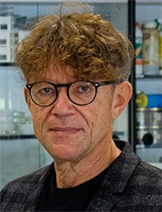 Contact Information
Contact Information Office: WSC 342
Lab: BGS 3053
Phone (Office): (519) 661-2111 x 86776
Phone (Lab): (519) 661-2111 x 86794
Fax: (519) 661-3935
Email: mgrbic@uwo.ca
Arthropod genomics, Evolution of developmental mechanisms, Biotechnology
Research WebsitePending
Research and Teaching
Arthropod genomics
In the last several years my group has made major strides in the development of Tetranychus urticae (spider mite) as an arthropod herbivore model. T. urticae has a rapid life cycle and feeds on over 1000 plant species. It therefore represents a key pest for greenhouse crops, annual field crops and many horticultural crops. The use of chemical pesticides is the predominant method of controlling spider mites. However, due to their short generation time and high reproduction rate, spider mites have developed resistance to the major pesticide groups, presenting a major challenge to control them. Currently, there are no cultivars resistant to spider mites.
We have led the T. urticae whole genome sequencing project [funded by the USA Department of Energy and Joint Genome Institute (DOE-JGI; https://jgi.doe.gov/why-sequence-the-two-spotted-spider-mite/ )], and established an international collaborative team GAP-M, ( http://www.spidermite.org/?page_id=108), funded by Genome Canada, Ontario Genomics Institute and Ontario Ministry of Research and Innovation, to assemble, annotate and analyse the T. urticae genome. We developed protocols for spider mite rearing, established a normal table of spider mite development, and developed methods for large-scale embryo collections, assay of gene expression (in situ hybridization and antibody staining) and inactivation of genes using RNA interference (RNAi). We are now moving forward with the goal of developing environmentally sound pest control strategies that reduce environmental pollution and energy consumption in agriculture
Evolution of developmental mechanismsWe are examining the functions and expression patterns of genes analogous to Drosophila segmentation genes in Copidosoma floridanum, an insect with a radically derived mode of early development. We are using in-situ hybridisation, antibody staining and ds RNAi to determine how the role of these genes may have changed over evolutionary time.
BiotechnologyWe are using fundamental knowledge gathered in the projects described above to develop novel tools for sustainable agriculture as well as in developing novel materials. To date, two applications are under development:
- RNAi-based pest control for spider mites
- spider mite silk as natural bio nanomaterial
Degrees and Institutions
- Assistant professor, Department of Biology, University of Western Ontario, Canada 1997-2003
- Adjunct Professor, Wayne State University (USA) 2003-present
- Human Frontier postdoctoral fellow, Wellcome Cancer and Developmental Biology Research Institute, Univ. of Cambridge (UK) 1996-1998
- NSF postdoctoral fellow University of Wisconsin, Madison, USA 1995-1996
- Ph.D. student University of Wisconsin, Madison (USA) double major in Developmental Biology and Entomology 1989-1995
- M.Sc. student University of Novi Sad (Yugoslavia) Entomology 1985-1988
- B.Sc. student University of Novi Sad (Yugoslavia) Entomology 1979-1983
Teaching
- Biology 4510G - Selected Topics in Genetics
- Biology 4560B - Human Molecular Genetics
Vojislava Grbic
Professor
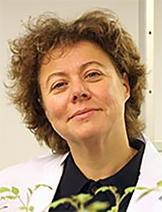 Contact Information
Contact Information Office: WSC 341
Phone (Office): (519) 661-2111 x 86898
Fax: (519) 661-3935
Email: vgrbic@uwo.ca
Arabidopsis Developmental Genetics/ Genomics of plant-pest interaction/ Biotechnology
Research WebsitePending
Research and Teaching
Genomics of plant-pest interaction
In order to develop alternative pest control strategies for sustainable agriculture, it is important to understand the interaction between plants and their herbivores. We are using Arabidopsis thaliana, tomato and grapevine as plant models, and the newly established chelicerate model Tetranychus urticae (spider mite) to uncover genomic responses of both organisms during plant-herbivore interaction. This work is part of an international collaborative initiative (GAP-M, Genomics in Agricultural Pest Management) that is funded by Genome Canada and Ontario Genomics Institute, and by Ontario Ministry of Research and Innovation.
Arabidopsis developmental geneticsThe aim of my research is to understand the molecular mechanisms that govern diversity of plant shoot forms. We are using the reference plant Arabidopsis thaliana for which excellent molecular-genetic resources are available and thousands of wild inbred strains have been collected, including some (e.g. Sy-0) with altered shoot morphology. We initially identified changes in the expression of flowering time genes FLC, FRI and HUA2, as required for the establishment of the Sy-0 phenotype and the lab is now focused on understanding the functions of the HUA2 gene, a putative pre-mRNA processing factor. We are also analyzing natural genetic variations in the floral regulator MAF2 that is a member of the tandemly duplicated cluster of MADS-box containing transcription factors in Arabidopsis thaliana.
BiotechnologyThe overall goal is to exploit fundamental knowledge to develop novel tools for sustainable agriculture and development of novel materials. To date, two applications are under development:
- RNAi-based pest control for the spider mite
- spider mite silk as natural bio nanomaterial
Degrees and Institutions
- PhD (Genetics), University of Wisconsin
- MSc (Plant Genetics), University of Novi Sad
- BS (Plant Breeding), University of Novi Sad
Teaching
- Biology 3593B – Genetic Engineering
- Biology 4950G – Seminar in Genetics
Christopher Guglielmo
Professor
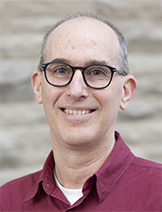 Contact Information
Contact Information Office: Collip 110
Lab: BGS 3012
Phone (Office): (519) 661-2111 x 81204
Phone (Lab): (519) 661-2111 x 86772
Phone (AFAR): (519) 661-2111 x 84648
Fax: (519) 661-3935
Email: cguglie2@uwo.ca
Animal ecological and evolutionary physiology
Research and Teaching
I have wide ranging research interests in physiological ecology, and this is reflected in the diversity of lab and field projects attempted (usually successfully) by me, my students and post-docs. Officially, I try to integrate physiology, biochemistry, behaviour, ecology, evolution and conservation biology. Unofficially, my lab group is in a constant state of identity crisis about what we really do. Our work is inherently multi-disciplinary and provides a means to understand how mechanistic processes operate within the larger context of whole organism performance. Physiology, in concert with morphology and behaviour, influences how animals interact with the environment, and understanding its flexibility will help us to predict how species may respond to natural or man-made perturbations.
My current research focuses on the physiology of endurance flight and stopover refueling in migratory birds and bats. We have a wide variety of laboratory and field studies underway using the wind tunnel and other unique capabilities of the Advanced Facility for Avian Research, my mobile Field Laboratory for Integrative Ecological Research (FLIER), and a digital telemetry array that we are installing in Ontario in collaboration with Bird Studies Canada.
Degrees and Institutions
- Ph.D. (Biological Sciences) Simon Fraser University, Burnaby, BC
- M.Sc. (Wildlife Ecology) University of Wisconsin, Madison, WI
- B.A. (Biology) New York University, New York, NY
Teaching
- Biology 2601 – Organismal Physiology
- Biology 3625G – Techniques in Physiology and Biochemistry
- Biology 4611 – Physiology of Animal Migration
Tim Hain
Assistant Professor, Biology Academic Counsellor
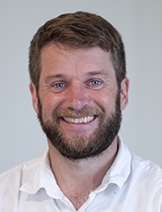 Contact Information
Contact Information Office: NCB 301F
Phone (Office): (519) 661-2111 x 86793
Fax: (519) 661-3935
Email: thain@uwo.ca
Behavioural Ecology and Biodiversity
Research WebsiteTo come
Research and Teaching
My research uses a combination of field and citizen science data to address questions related to
- the social and mating behaviour of bluegill sunfish,
- the effects of anthropogenic stressors on biodiversity.
Degrees and Institutions
- PhD - Western University, ON (Zoology, 2015)
- BSc - Western University, ON (Biology, 2004)
Teaching
- Biology 2290a/b - Political Biology
Hugh Henry
Professor; Director, Environmental Sciences Western Field Station
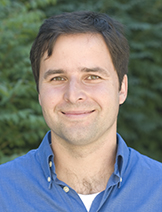 Contact Information
Contact Information Office: BGS 3021
Phone (Office): (519) 661-2111 x 81548
Fax: (519) 661-3935
Email: hhenry4@uwo.ca
Terrestrial plant ecology
Research WebsiteResearch and Teaching
I am a terrestrial plant ecologist with interests in biogeochemistry, community ecology, physiological plant ecology and global change ecology. I use field experimentation, laboratory methods and theoretical modeling to explore questions ranging from resource acquisition by individual plants to species responses at the community level and nutrient cycling at the ecosystem level. I am particularly interested in winter ecology, and exploring how plants and microorganisms interact to regulate nutrient cycling in both natural and managed systems.
Degrees and Institutions
- PhD (Botany) University of Toronto, Toronto, ON
- MSc (Biology) Queen's University, Kingston, ON
- BSc Hon (Biology) University of Toronto, Toronto, ON
Teaching
- Biology 4944G - Seminar in Ecology and Evolution
Kathleen Hill
Associate Professor and Associate Chair (Research); Cross-appointed to Computer Science and Ophthalmology; Associate Scientist at the Lawson Health Research Institute
 Contact Information
Contact Information Office: WSC 333
Lab: WSC 329
Phone (Office): (519) 661-2111 x 81337
Phone (Lab): (519) 661-2111 x 86774
Fax: (519) 661-3935
Email: khill22@uwo.ca
Genome organization and integrity
Research and Teaching
To come.
Degrees and Institutions
- Assistant Research Scientist, Molecular Genetics, City of Hope, Duarte, CA, USA
- Postdoctoral Researcher, Molecular Genetics, City of Hope, Duarte, CA, USA
- Postdoctoral Researcher, Biochemistry, Mayo Clinic MN, USA
- PhD Zoology, The University of Western Ontario, London Ontario, Canada
- MSc Biology, The University of Windsor, Windsor Ontario, Canada
- Hon BSc Biology, The University of Windsor, Windsor Ontario, CanadaN
Teaching
- Biology 3592A – Principles of Human Genetics
- Biology 3594B – DNA: Genome Organization, Mutagenesis and Repair
Daniel Jeffery
Assistant Professor
Genetics
Teaching
Degrees and Institutions
- PhD (Molecular and Cell Biology) – University of Guelph
- BSc Honours (Molecular Biology and Genetics) – The University of Guelph
Teaching
- Bio 2581: Genetics
- Bio 3596: Genomics & Beyond: A Laboratory Course
- Bio 4583: Molecular Genetics Laboratory
Jim Karagiannis
Associate Professor
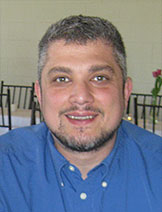 Contact Information
Contact Information Office: BGS 3080
Lab: BGS 3084
Phone (Office): (519) 661-2111 x 80975
Phone (Lab): (519) 661-2111 x 86478
Fax: (519) 661-3935
Email: jkaragia@uwo.ca
Eukaryotic Cell Division
Research and Teaching
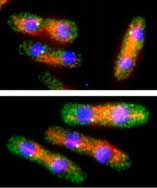 Eukaryotic cells rely on the dynamic interactions of DNA, RNA, proteins and lipids in order to grow, divide and respond "intelligently" to environmental and/or developmental cues. All of the information necessary to carry out these complex functions must be encoded into the genome in a "self-extracting" form. An understanding of the molecular mechanisms used to extract, express, copy, and protect this information has been, and continues to be, a major goal of biology.
Eukaryotic cells rely on the dynamic interactions of DNA, RNA, proteins and lipids in order to grow, divide and respond "intelligently" to environmental and/or developmental cues. All of the information necessary to carry out these complex functions must be encoded into the genome in a "self-extracting" form. An understanding of the molecular mechanisms used to extract, express, copy, and protect this information has been, and continues to be, a major goal of biology.
One of the premier organisms used to understand this complexity is the fission yeast, Schizosaccharomyces pombe. This unicellular eukaryote provides tremendous experimental advantages that include the ease of genetic manipulation, the availability of genomics tools, and the capacity to apply advanced biochemistry and fluorescence microscopy. Research in the lab focuses these tools on the regulatory modules governing the successful completion of cytokinesis.
Cytokinesis comprises the stage of the cell cycle in which newly segregated chromosomes are irreversibly separated into independent daughter cells by the mechanical cleavage of the mother cell into two. The successful completion of cytokinesis requires the intricate interplay of gene products that range from signalling molecules to elements of the cytoskeleton. Thus, this experimental system provides an excellent opportunity to increase our understanding of how eukaryotic cells assemble and regulate complex genetic networks. Through the study of cytokinesis in we hope to reveal general themes, or rules of genetic regulation, that are applicable to the control of genetic pathways across all eukaryotes.
Degrees and Institutions
- PDF (Cell Growth and Division) – Temasek Life Sciences Laboratory, National University of Singapore, 2002-2006
- PhD (Cell and Molecular Biology) – Queen's University, 2002
- BSc (Biology) – The University of Guelph, 1995y
Teaching
- Biology 4561F - Genes and Genomes I
- Biology 4260B: Cellular Systems Biology
Greg Kelly
Professor
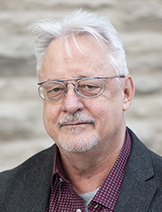 Contact Information
Contact Information Office: WSC 359
Phone (Office): (519) 661-3121
Lab: WSC 355
Phone (Lab): (519) 661-2111 x 86478
Fax: (519) 661-3935
Email: gkelly@uwo.ca
Cell Signaling in Vertebrate Embryos
Research Websitehttp://thekellylab.weebly.com (Please access via WiFi)
Research and Teaching
The series of events that pattern the vertebrate embryo may be considered a proliferative, almost cancerous-like growth phase goverened by strict developmental guidelines. Many of these events rely on cell-cell communication and the transduction of signals across the plasma membrane of the receiving cell. Thus, disrupting this signaling has dramatic and disastrous effects on many aspects of cell physiology including, but not limited to, cell-cell and cell-substrate interactions, cell polarity, endo- and exocytosis, migration, proliferation, and differentiation. My research specifically deals with the cell-cell signaling events that pattern the developing vertebrate embryo, and particularly how crosstalk generated by Reactive Oxygen Species influence Wnt-beta-catenin, Planar Cell Polarity, and G-Protein Coupled Receptor-linked pathways. The models that I use vary from established tissue culture cells like the mouse F9 embryonal carcinoma line, to the zebrafish (Danio rerio) embryo. The biological phenomenon that piques my interest is the epithelial-to-mesenchymal transition, which is involved in normal embryonic development including extraembryonic endoderm formation, gastrulation and heart formation, as well in human disease conditions such as fibrosis and metastatic cancer.
Degrees and Institutions
- PhD Zoology, University of Manitoba
Teaching
- Biology 3316 - Advanced Cell Biology
- Biology 4338 - Advanced Developmental Biology
Nusha Keyghobadi
Professor
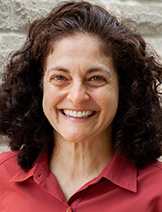 Contact Information
Contact Information Office: BGS 2076
Lab: BGS 2062
Phone (Office): (519) 661-2111 x 80471
Fax: (519) 661-3935
Email: nkeyghob@uwo.ca
Molecular ecology, landscape genetics and conservation genetics
Research WebsiteResearch and Teaching
I am a molecular ecologist and research in my lab integrates concepts and methods from population genetics, conservation biology and landscape ecology. We use a combination of field and lab techniques to investigate factors that affect the genetic diversity, and spatial genetic structure, of populations. Applied aspects of our research relate to conservation, habitat fragmentation, and the management of invasive and pest species.
Degrees and Institutions
- PhD University of Alberta (Environmental Biology & Ecology)
- BSc University of Toronto (Biology)
Teaching
- Biology 2485B: Environmental Biology
- Biology 3444F: Molecular Ecology
Susanne Kohalmi
Associate Professor
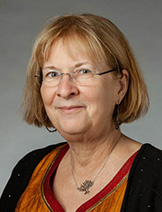 Contact Information
Contact Information Office: WSC 319
Phone (Office): (519) 661-2111 x 86485
Fax: (519) 661-3935
Email: skohalmi@uwo.ca
Gene Families and Regulation
Research WebsiteResearch and Teaching
I have always been fascinated by the complexity of regulatory processes in organisms. It is amazing to see how organisms are able to sense small changes in the environment or in their own metabolism, and to respond by changing the expression of select genes. This can lead to tissue- and/or cell-specific responses such as those involved in protein reallocation and complex formation, or changes in activity spectra of enzymes. The complexity of these events is often increased as many reactions involve multi gene families encoding proteins that have highly similar but not identical sequences that mediate and fine-tune cellular responses.
To study regulatory events in plants we chose as a model system the arogenate dehydratase family (ADTs) in Arabidopsis thaliana. In Arabidopsis there are six members in the ADT family and these enzymes catalyze the last step in the synthesis of phenylalanine. We believe that these enzymes are catalyzing a key step in the production of phenylalanine and thereby co-ordinating the Shikimate pathway and the many branches of phenylpropanoid biosynthesis. We are interested to understand and characterizing as many of the molecular aspects which relate to this gene family inArabidopsisthaliana. The questions we are asking can be at times as simple as: why does Arabidopsisneed six versions of this enzyme? How do these enzymes differ? Are there post-translational modifications? Do these different members of the ADT family contribute to different protein complexes? Are the enzymes or the encoding genes regulated differentially in response to different internal and environmental cues? We already have found some answers. All six ADTs code for proteins which have similar but not identical enzymatic functions. All six ADTs are expressed in all tissues and developmental stages analyzed, but not at the same levels. The encoded proteins have unique subcellular localization patterns. And just to make it even more fun, the six ADTs form homo- and hetero dimers. We still need to investigate if these dimers are formed in all parts of the plant, if they result in unique compositions of protein complexes and what functional consequences these dimer and/or complex formations may have.
Degrees and Institutions
- PhD University of Manitoba - Microbiology, 1991
- Diploma J.W. Goethe U. Frankfurt, Germany - Biology, 1985
Teaching
- Biology 3596a: Genomics and Beyond – A Laboratory Course
- Biology 4562b: Genes and Genomes II
- Biology 4999e: Honors Research Thesis
Zoë Lindo
Professor
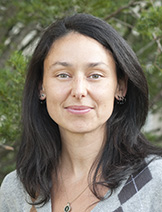 Contact Information
Contact Information Office: BGS 3064
Lab: Biotron 20B
Phone (Lab): (519) 661-2111 x 86842
Fax: (519) 661-3935
Email: zlindo@uwo.ca
Community ecology, Soil ecology
Research WebsiteResearch and Teaching
Many ecosystems are currently undergoing dramatic changes in biodiversity due to habitat loss and fragmentation associated with land use change, pollution, overexploitation, and climate change. Mitigating these effects requires an understanding of the drivers of biodiversity loss, and the consequences of loss on ecosystem processes and functioning. As there is unequivocal evidence for directly linking the effects of global change, soil biodiversity and nutrient cycling, my research uses a combined aboveground-belowground approach for understanding the regulation and functional significance of biodiversity. My lab uses experiments in the field, greenhouse and laboratory ( BIOTRON), and the integration of empirical results with current theoretical perspectives to help identify how to mitigate the impacts of environmental change and maintain ecosystem function in soil systems.
Degrees and Institutions
- PDF Biodiversity Science, McGill University, Canada (2011)
- PhD Community Ecology, University of Victoria, Canada (2008)
- MSc Soil Ecology, University of Calgary, Canada (2003)
- BSc Ecology, University of Calgary, Canada (2001)
Teaching
- Biology 3445F - Community Ecology
- Biology 4412 - Biodiversity Science
Natasha MacBean
Associate Professor
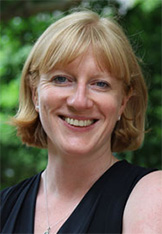 Contact Information
Contact Information Office: SSC 2412
Lab: SSC 2404
Phone: (519) 661-2111 x85008
Fax: (519) 661-3813
Email: nmacbean@uwo.ca
Biogeochemistry, Global Change Biology, Terrestrial Ecosystem Science, Vegetation Dynamics, Climate Change, Earth System Modeling
Research WebsiteResearch and Teaching
My research focuses on understanding climate-carbon-vegetation interactions in response to climate change, rising CO2, and land use and land cover change. I use two main approaches: 1) developing, testing, and optimizing process-based terrestrial biosphere models; and 2) spatiotemporal data analysis to interpret field and satellite observations. My work spans scales from ecosystems to the globe, from boreal to tropical forests, and from temperate to semi-arid grasslands.
Degrees and Institutions
- Associate Professor – Department of Biology & Department of Geography, Western University, Canada (2025-present)
- Assistant Professor – Department of Biology & Department of Geography, Western University, Canada (2022-2025)
- Assistant Professor – Department of Geography, Indiana University, USA (2018-2022)
- PDF – School of Natural Resources and the Environment, University of Arizona, USA (2016-2018)
- PDF – Laboratoire des Sciences du Climat et de l’Environnement (LSCE), France (2011-2016)
- PhD – Geography, University College London, UK (2011)
- MESci – Earth Sciences,University of Oxford, UK (2007)
- BSc – Earth Sciences,University of Oxford, UK (2006)
Teaching
- Global Change Biology (Bio 3425F/G)
- Environmental Modelling (Geog 3353/9105)
Beth MacDougall-Shackleton
Professor
 Contact Information
Contact Information Office: Collip 103/103A
Lab: BGS 3059
Phone (Office): (519) 661-2111 x 81206
Phone (Lab): (519) 661-2111 x 81534
Fax: (519) 661-3935
Email: emacdoug@uwo.ca
Ecoimmunology and behavioural ecology of migratory birds
Research WebsiteResearch and Teaching
Parasites are taxonomically and geographically widespread, and can have catastrophic effects on host survival and reproduction. As a result, parasites are increasingly recognized as critical drivers of host evolution. Research in my lab seeks to understand how evolutionary processes such as parasite-mediated selection interact with ecological processes such as seasonal migration, natal dispersal, mate choice and immune development to shape patterns of genetic variation within and among songbird populations. Specific projects include evolutionary arms races between songbirds and malarial parasites; geographic variation in parasite assemblages and in immune-related loci such as the major histocompatibility complex (MHC); effects of infectious disease on the timing, distance and success of seasonal migration; ecological immunology of migration and dispersal; and chemical and acoustic signals by which songbirds advertise their genetic makeup at MHC and assess that of potential mates.
Degrees and Institutions
- PhD Princeton University, Ecology & Evolutionary Biology, (2000) (supervisor Tom Hahn)
- MSc Queen's University, Biology, (1994) (supervisor Raleigh Robertson)
- BSc Queen's University, Biology, (1992)
Teaching
- Biology 1001A Biology for Science I
- Biology 4441F Special Topics in Evolution
- Biology 9436B Behavioural Ecology (graduate course)
Denis Maxwell
Associate Professor
Teaching
Degrees and Institutions
Teaching
- Biology 1002B - Biology for Science II
- Biology 3603A/B - Ecophysiology of Plants
Patrick McDonald
Assistant Professor
Teaching
Degrees and Institutions
- PhD Zoology, The University of Western Ontario, London, Ontario, Canada
- Hon. BSc Genetics, The University of Western Ontario, London, Ontario, Canada
Teaching
- Biology 1002B - Biology for Science II
- Biology 1290B - Biology and Microorgranisms
- Biology 3594B - Genome Organization, Mutagenesis and DNA Repair
- Biology 3597A - Regulation of Gene Expression
- Biology 3596F/G - Genomics and Beyond: A Labratory Course
- Biology 4950F - Seminars in Genetics
Paul Mensink
Assistant Professor
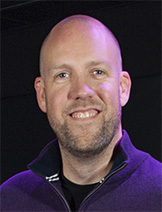 Contact Information
Contact Information Office: NCB 443
Phone (Office): (519) 661-2111 x87563
Fax: (519) 661-3935
Email: paul.mensink@uwo.ca
Marine Ecology and Educational Technology
Research and Teaching
My work revolves around the interaction between people and the marine environment and aims to promote ocean sustainability by improving management and conservation outcomes. To achieve this goal, I use a diverse array of empirical and observational approaches to study the behavior, movement ecology and population dynamics of marine species, with a strong focus on species that are directly exploited or adversely affected by commercial and recreational fisheries.
I also conduct pedagogical research focused on the use of educational technology to enhance learning outcomes for students. My current work explores the benefits of disseminating assessment feedback through virtual learning environments.
Degrees and Institutions
- Teaching Fellow - Faculty of Science
- Lecturer, Queen’s University Belfast, 2015-2018
- Postgraduate Certificate in Higher Education Teaching, Queen’s University Belfast, 2017
- PhD (Marine Biology) Victoria University of Wellington, 2014
- MSc (Biology with Environmental Science) Western University, 2009
- BSc (Specialization in Ecology and Evolution) Western University, 2007
Teaching
- EnvrSust 1021 F/G – Environmental Science and Sustainability
- EnvrSust 9011 – Foundations of Sustainability
- EnvrSust 9430/9440 – Interdisciplinary Research Seminar
Natasha Mhatre
Associate Professor
Canada Research Chair in Invertebrate Neurobiology
 Contact Information
Contact Information Office: BGS 3023
Phone (Office): (519) 661-2111 x84505
Fax: (519) 661-3935
Email: nmhatre@uwo.ca
Communicating with sound and vibration
Research WebsiteResearch and Teaching
I am interested in understanding how different animals, particularly invertebrates, perceive sounds and also vibrations. My research uses different experimental techniques like laser vibrometry and 3D uCT imaging, and couples them with physics and mechanics based modelling to understand how these two types of mechanosensory systems function.
My research aims at understanding the different mechanisms used by these sensory systems to adapt to their ecological needs and achieve high sensitivity. An obvious mechanism is structure, both of the sensor itself and also of the whole body that that sensor is embedded in.
I am also particularly interested in a unique physiological mechanism called 'active amplification' that only some mechanosensory systems possess. In insects this process works through the sensory neurons which expend their own energy to actively amplify incoming sounds and the resulting vibrations. This amplification occurs through the activity of motor proteins within these neurons. This is a unique process for many reasons, and not least because it blends the sensory with the motor. As a result, I spend a lot of time thinking about these categories themselves, about whether and when they are useful to consider as separate.
I also occasionally work in sound and vibration production, since much of the experimental and theoretical apparatus is the same. One area of sound production that I am particularly interested in is the use of acoustic tools and objects. I've shown that simple insects like tree crickets can make optimal tools and that optimization is achievable using a small set of rules. In the future, I want to examine this cognitive system further. I also want to explore the possibility that the size of such 'rule-sets' might be a better way to think about the complexity of animal tools and objects.
Degrees and Institutions
- PDF (University of Toronto at Scarborough) 2018
- Fellow of the College of Life Sciences (Wissenschaftskolleg zu Berlin) 2014
- Marie Curie fellow and PDF (Univeristy of Bristol) 2013v
- UKIERI Research associate (Indian Institute of Science & University of Bristol) 2010
- PhD (Indian Institute of Science) 2008
Teaching
- Bio 4920G – Seminar in Biology
Amanda Moehring
Professor
 Contact Information
Contact Information Office: WSC 307
Lab: WSC 313
Phone: (519) 661-2111 x85597
Fax: (519) 661-3935
Email: amoehrin@uwo.ca
Genetics of behaviour and species formation
Research WebsiteResearch and Teaching
The broad-scale research goals of my laboratory are to understand the genetic and neural bases of variation in behaviour. Two behaviours that are critical for survival and reproduction are aggression and mating behaviour. While these traits have been extensively studied in males, their underlying genetic and neural basis in females is poorly understood. My research group seeks to identify the underlying genetic and neural variation that leads to variation in female mating receptivity and female aggression. We use the model system of Drosophila due to the extensive genetic and molecular tools this species offers. We use a mix of quantitative genetics, molecular genetics, neuroscience, cellular biology, and behavioural assays in order to understand these complex traits.
Degrees and Institutions
- PDF: Duke University (with Dr. Mohamed Noor), 2008
- PhD (Genetics): North Carolina State University (with Dr. Trudy Mackay), 2003
- BS (Biology): Pacific University, 1997
Teaching
- Biology 2581 - Introduction to Genetics
Yolanda Morbey
Professor
 Contact Information
Contact Information Office: Collip 209/209A
Lab: BGS 2055/2048
Phone (Office): (519) 661-2111 x80116
Fax: (519) 661-3935
Email: ymorbey@uwo.ca
Behavioural Ecology; Seasonal and life history timing
Research WebsiteResearch and Teaching
My research integrates evolutionary theory and empirical studies to study the adaptive timing behaviour of migratory birds and fish. Ongoing projects include sex differences in the stopover behaviour and timing of warblers in southern Ontario, the evolution & ecology of introduced salmon in the Great Lakes, environmental cues of annual migration timing in kokanee salmon, and optimal maturation schedules in lake whitefish. Questions about seasonal timing are critical in this era of climate change, when phenological mismatch with the environment has the potential to impact populations.
Degrees and Institutions
- PhD (Biology) Simon Fraser University
- MSc (Biology) Simon Fraser University
- BSc (Biology) University of Victoria
Teaching
- Biology 3435G - Animal Ecology
- EnvSci 4970F/G - Independent Study - Course Coordinator
- Biology 4999E - Honors Research Thesis - Course Coordinator
- EnvSci 4999E - Honors Research Thesis - Course Coordinator
- Biology 9440G - Topics in Ecology & Evolution (Movement Behaviour & Analysis)
Bryan Neff
Professor
 Contact Information
Contact Information Office: BGS 3056
Lab: BGS 0064
Phone (Office): (519) 850-2532
Phone (Lab): (519) 661-2111 x 88408
Phone (Aquarium): (519) 661-2111 x x 82876
Fax: (519) 661-3935
Email: bneff@uwo.ca
Molecular and Behavioural Ecology
Research WebsiteResearch and Teaching
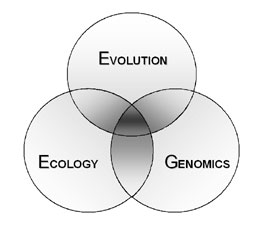
My lab’s long-term goal is to provide an understanding of phenotypic diversity in natural populations – why do individuals look and act the way they do – from molecules to organisms living in their natural environment. Understanding the forces that shape and affect our world’s biodiversity is a fundamental objective in biology and is important for pure discovery as well as the conservation of our natural resources. This objective requires scientific research that addresses the genetic basis of behavioural, physiological, and morphological variation. My lab uses genetic and molecular tools to examine questions at the interface of evolution, ecology, and genomics. This approach has the potential to provide a comprehensive understanding of phenotypic diversity including the evolution of genes, gene function, and the interaction between genes and the environment.
We predominately work with fish including bluegill, bullhead, guppy, and salmon. Several of these species are socially and economically important in Canada and represent billions of dollars per year to our economy through the recreational and commercial fisheries as well as the aquaculture industry. Thus, the scientific knowledge that my lab produces is also important for the effective management of our natural resources and for ensuring their sustainability. Our research falls into four areas:
- Understanding evolution and the genetics of adaptation
- Neurobiology and endocrinology of behaviour
- Conserving native biodiversity
- Improving the efficiency and sustainability of aquaculture.
Degrees and Institutions
- Post doctorate Fellow, Cornell University, 2001
- PhD (Zoology) University of Toronto, 2000
- BSc (Zoology) University of Toronto, 1996
Teaching
Joshua Pemberton
Assistant Professor
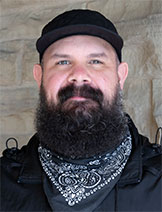 Contact Information
Contact Information Office: BGS 3030
Lab: BGS 3029
Phone (Office): (519) 661-2111 x 83131
Phone (Lab): (519) 661-2111 x 86773
Fax: (519) 661-3935
Email: joshua.pemberton@uwo.ca
Eukaryotic Cell Biology – Organelle Dynamics, Membrane Trafficking, and Lipid Metabolism
Research WebsiteUnder Construction
micrographiauwo.ca
Research and Teaching
The ability to spatially organize complex metabolic processes is essential for eukaryotic cell survival. Unique subcellular compartments, called organelles, have evolved to regulate distinct biochemical pathways and are separated from one another by intricate biomolecular membranes. Importantly, throughout the variety of functionally distinct organelles, lipids are consistently the most abundant structural components and disproportionately influence bulk membrane properties as well as organelle remodeling processes. In addition to these important structural roles, membrane lipids can be directly modified by substrate-specific enzymes to dynamically control intracellular energy storage and signal transduction pathways. As a result, defining how the distinctive lipid compositions of specific membranes are established and sustained is fundamental to understanding organelle functions and the integrative metabolic physiology of cells.
However, few research groups have been able to effectively study the coordinate regulation of membrane lipid synthesis and turnover using intact cells, which, unlike fixed-cell or in vitro reconstitution systems, still possess functional inter-organelle contacts and the entire complement of protein and lipid trafficking machineries. Given these shortcomings, my research program will leverage innovative live-cell experimental approaches that incorporate state-of-the-art techniques and emerging technologies to address the following fundamental questions:
- How do eukaryotic cells dynamically maintain membrane-enclosed organelles with distinctive lipid compositions?
- How does organelle function uniquely and collectively respond to localized changes in membrane lipid composition? and
- How do organelle-selective remodeling mechanisms and quality control pathways interact with the lipid synthetic and transport machineries to prevent irreversible membrane damage and mitigate subcellular dysfunction?
Importantly, in pursing these long-term objectives, trainees will learn to use complementary molecular, chemical, and cell biology methods, all of which will prepare them to be leaders in the emerging field of molecular membrane biology.
Degrees and Institutions
- Research Fellow – Biochemistry Section, National Institute of Neurological Disorders & Stroke (NINDS, USA), 2024
- Visiting Fellow – Section on Molecular Signal Transduction, Eunice Kennedy Shriver National Institute of Child Health & Human Development (NICHD, USA), 2022
- Ph.D. (Physiology, Cell & Developmental Biology) University of Alberta, 2015
- B.Sc. (Physiology, Cell & Developmental Biology) University of Alberta, 2009
Teaching
- Not available
Anthony Percival-Smith
Associate Professor & Associate Chair (Graduate)
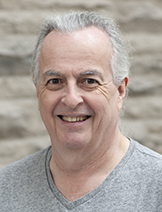 Contact Information
Contact Information Office: WSC 305
Phone (Office): (519) 661-4015
Fax: (519) 661-3935
Email: aperciva@uwo.ca
Molecular mechanisms of morphogenesis
Research WebsiteResearch and Teaching
For the past two decades, the application of genetic dissection and molecular biology has resulted in an explosion in our knowledge of the mechanisms that control the process of Development. One of the major experimental systems that contributed to this explosion is the model organism Drosophila melanogaster. My laboratory is studying two aspects of the molecular basis of the body plan. The body plan is required for positioning and determining the identity of the various body parts.
The first aspect of the body plan that we study is the role that the protein encoded by the gene fushi tarazu plays in determining the number of segments of Drosophila body plan. Fushi tarazu protein is expressed in every other segment resulting in bands of Fushi tarazu expression across the anterior posterior axis. Without fushi tarazu protein, the embryo develops lacking half of its segments.
The second aspect of the body plan that we study is the role of the proteins encoded by the two genes, proboscipedia and Sex combs reduced, in determining of the identity of four body parts. Both proboscipedia and Sex combs reduced are homeotic genes. Mutant alleles in homeotic genes result in striking phenotypes where one body part is transformed into the likeness of another. Loss-of-Proboscipedia protein results in the transformation of the mouth parts into a pair of first leg tarsi.
Degrees and Institutions
- PhD University of Toronto 1987
- BSc University of British Columbia 1981
Teaching
- Biology 4540b - Developmental Genetics
Jennifer Peter
Lecturer
Teaching
Degrees and Institutions
- BEd, Science and Mathematics, Queen's University
- MSc, Biology, Queen's University
- BSc Honours, Environmental Biology, Queen's University
Teaching
- Biology 1001A - Biology for Sciences I (summer term)
- Biology/Statistics 2244A/B - Analysis and Interpretation of Biological Data / Statistics for Science
- Statistics 1023/2037 - Statistical Concepts / Statistics for Healths
Michael Pyne
Assistant Professor
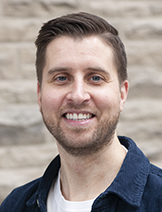 Contact Information
Contact Information Office: BGS 2080
Lab: BGS 2082
Phone (Office): (519) 661-2111 x85802
Phone (Lab): (519) 661-2111 x86928
Email: mpyne3@uwo.ca
Synthetic biology, metabolic engineering, natural products
Research WebsiteUnder Construction
Research and Teaching
My research program aims to discover, overproduce and engineer plant natural product pathways in microbial systems. Our approach merges synthetic biology and classical retrosynthesis to design novel routes to privileged pharmaceutical scaffolds. We utilize bioinformatics and combinatorial pathway reconstruction to identify plant tailoring enzymes for the synthesis of natural product drugs and new-to-nature structures.
Degrees and Institutions
- Research associate (synthetic biology), Concordia University, 2019-2022
- Postdoctoral fellow (synthetic biology), Concordia University, 2015-2019
- Postdoctoral fellow (chemical engineering), University of Waterloo, 2014-2015
- PhD (chemical engineering), University of Waterloo, 2008-2014
- BSc (biochemistry and biotechnology), Wilfrid Laurier University, 2004-2008
Teaching
- Biology 4998E - Synthetic Biology
Ben Rubin
Assistant Professor, Departmental Statistical Consultant
 Contact Information
Contact Information Office:BGS 3072
Phone (Office): (519) 661-2111 x 87475
Fax: (519) 661-3935
Email: brubin2@uwo.ca
Forest ecology, landscape pathology, forest health monitoring, statistical analysis
Consulting and Teaching
My main scientific questions are: How much tree mortality is normal in a forest? And, how can we identify places and times where that baseline mortality rate is exceeded? My responsibilities in the Biology Department currently include 1) teaching field biology courses (undergraduate), 2) teaching statistics courses (graduate), and 3) statistical consulting.
I currently offer two field biology courses. Biol 3230F is based on campus with day trips to nearby field sites in early fall. The course emphasizes, study design and field measurement techniques. My other field course, Adirondack Forest Ecology, is offered in collaboration with other Ontario universities ( oupfb.ca) and takes place in mid-May at the Newcomb Campus research station in the central Adirondack Mountains, NY, USA. The students and I spend two weeks living at the research station, exploring the flora, fauna, and history of the region, and practicing field sampling methods.
Recent graduate courses have included mixed effects modeling, multivariate statistics, and spatial statistics. I typically teach one graduate statistics course in the winter term. Courses emphasize informed application of analytical techniques using R and based on a comprehensive conceptual understanding of the underlying methodology but not based on formal mathematical derivations.
In addition to teaching these courses I offer statistical consulting to researchers in the Biology Department including faculty, post-docs, graduate & undergraduate honours thesis students. If you are interested in any of these or other help with study design, statistics or R, please email me!
Degrees and Institutions
- PDF Michigan State University, East Lansing, MI, USA
- PhD State University of New York, College of Environmental Science and Forestry, Syracuse, NY, USA – 2003
- MSc State University of New York, College of Environmental Science and Forestry, Syracuse, NY, USA – 1999
- BSc McGill University, Montreal, QC - 1994
Teaching
- Biology 3230F – Field Research in Biology
- Biology 3220Z - Adirondack Forest Ecology (OUPFB Field Course)s
Niki Sharan
Assistant Professor, Coordinator of First Year Biology
 Contact Information
Contact Information Office:NCB 301G
Phone (Office): (519) 661-2111 x 86502
Fax: (519) 661-3935
Email: nsharan@uwo.ca
Undergraduate education
Consulting and Teaching
I provide leadership in first year biology, where I lecture to over 2300 students each year and oversee coordination of the course. My emphasis is to train students to be strong critical thinkers and to ignite their passion for biology. Mastering the material of first year biology also sets up students for future academic success, which I appreciated when I taught third- and fourth-year genetics courses at Western University for a decade. I have consistently featured on the University Student’s Council Teaching Honor Roll, which is awarded annually to Western’s best instructors as determined by students.
I have developed my experience with online teaching over many years. I use information technology to enrich student learning, which includes the use of online laboratory simulations.
Finally, I conduct research to improve undergraduate education. Current projects are in the areas of online testing, and how success in first year biology associates with longer-term educational success.
Degrees and Institutions
- PhD (Molecular Biology and Genetics), McMaster University 2004
- MSc (Molecular Biology and Genetics), McMaster University, 1999
- BSc (Biochemistry), Laurentian University, 1999
Teaching
Current
- Biology 1001A and 1002B – Biology for Sciences I, II (Fall, Winter & Summer Terms), Course Coordinator
Prior
- Biology 3596B – Genomics and Beyond
- Biology 3595A – Advanced Genetics
- Biology 4950G – Seminar in Genetics
- Biology 1202B – General Biology II
Anne Simon
Associate Professor
Genetics of Social Behavior
Research WebsiteResearch and Teaching
In my lab, we are interested in determining the neurogenetic mechanisms by which animals respond to the presence of another similar individual. How does an animal decide what to do with the information that another individual is nearby? What are the neurogenetic circuitries underlying social interactions?
Using a now widespread behaviour paradigm designed in my lab, we assess one aspect of the fruit flies’ (Drosphila melanogaster) social behaviour: their preferred social space (space "bubble"). In an undisturbed group, flies will settle a reproducible distance that will depend on their genotype and their environment (social experience, their age and that their parents, or exposure to toxins, synaptic function...). We also quantify another type of response to social cues: flies strongly avoid the volatile substance Drosophila stressed odorant (dSO) emitted by stressed flies. Those paradigms have the advantage of being straightforward to implement, which allow us to pursue several lines of research, falling under two main umbrellas:
Fundamental Behavioural Genetics questions:
We are pursuing the neurogenetic characterization of social space behaviours in Drosophila, determining the neural circuitry underlying the social distance preference. We address these questions using both genetic mutants and biochemical approaches.
Through collaboration with Agriculture Canada, we also are characterizing dSO: its emission, its reception, and its composition (beyond CO2).
Study of candidate genes:
Taking advantage of the simple behavioural paradigms and use them as diagnostic tools to elucidate conserved pathways underlying candidate genes or environmental conditions affecting human behaviours, in order to identify potential targets for drug discovery. Indeed, inappropriate response to others is a shared deficit in many mental disorders, such as schizophrenia and bipolar disorders.
Our work contributes to the mapping of the central brain neural substrate underlying basic (non-sexual and non-aggressive) response to another nearby fly. This work will be relevant not only to studies of Drosophila behaviour, but also to genetics of social behaviour in other organisms. Indeed, as for other behaviours initially dissected in Drosophila – learning and memory, circadian rhythm (Nobel Prize 2017 Physiology and Medicine) - the cellular and molecular basis of social behaviour might be conserved through evolution.
Finally, I deeply enjoy sharing my fascination for the complexity of the biological world with students of all levels. I think that teaching happens beyond the classroom, and in parallel to teaching in the classroom, I have been continuously mentoring undergraduate and graduate students in my research projects.
Degrees and Institutions
- Assistant Professor CUNY/York College, Biology Department, Jamaica, NY, 2008-13
- Assistant Research Geneticist UCLA, Brain Research Institute, 2004-08
- Research Scientist Cedars-Sinai Medical Center, 2003-04
- Postdoctoral researcher California Institute of Technology, 1998-2003
- PhD Molecular and Cellular Genetics, University of Paris XI, FRANCE, 1998
- MS Molecular and Genetic Biology, University of Paris XI, FRANCE, 1994
- BS Molecular Biology and Genetics, University of Paris XI, FRANCE, 1993
Teaching currently (and past)
- (Biology 3316A: Advanced Cell Biology)
- Biology 3596: Genomics and Beyond – 3rd year genetic lab course
- (Biology 3597B: Regulation of Gene Expression)
- (Biology 3598B: Behavioral Genetics)
- Biology 4950: Seminars in Genetics
- Biology 4970G/F: Independent Study in Biology
- Biology 4999E: Honor Research Thesis
David Smith
Professor
 Contact Information
Contact Information Office: BGS 3028
Lab: BGS 3027
Phone (Office): (519) 661-2111 x 86482
Fax: (519) 661-3935
Email: dsmit242@uwo.ca
Genome evolution and genetic diversity of microbial eukaryotes
Research WebsiteResearch and Teaching
We study genome architecture, genetic diversity, and the evolutionary forces that fashion genes and chromosomes. We’re interested in how nonadaptive processes shape genomes, including their nucleotide composition, compactness, conformation, chromosome number and telomeres. Much of our research employs protists (microbial eukaryotes). Protists have among the most diverse and eccentric genomes in the biological world, yet they are generally an untapped resource for studying genome evolution. We love weird genomes and trying to understand how they got that way.
Degrees and Institutions
- PhD (Genetics and Evolution) Dalhousie University
- BSc (Biology) Acadia University
Teaching
- Biology 3595B – Advanced Genetics
- Biology 4563G – Genome Evolution
Jim Staples
Professor
 Contact Information
Contact Information Office: BGS 3020
Lab: BGS 3010
Phone (Office): (519) 661-2111 x 84057
Fax: (519) 661-3935
Email: jfstaple@uwo.ca
Graduate Chair: bgec@uwo.ca
Comparative Physiology and Biochemistry
Research WebsiteResearch and Teaching
My research program aims to understand how the metabolic systems of animals adapt to environmental challenges. In particular I am interested in the strategies used by endothermic animals to deal with cold environments. When challenged by the cold, most endotherms increase metabolic rate and heat production. We study enzymatic and mitochondrial “futile cycles” in bumblebees and rats as possible mechanisms of non-shivering thermogenesis.
Some small endotherms use an apparently opposite strategy by entering hibernation or torpor during the coldest parts of the year. These states involve profound reductions of body temperature and metabolic rate, allowing for energetic savings at a time when food supplies are typically at their lowest. We study mitochondrial metabolism in hibernation (using ground squirrels) and daily torpor (using dwarf Siberian hamsters) to better understand the mechanisms of metabolic suppression, and potential interactions with temperature and diet.
Degrees and Institutions
- PhD (Zoology), University of British Columbia
- BSc (Marine Biology), University of Guelph
Teaching
- Biology 3220Z/4257Z/4258Z: Field Studies in Biology (Experimental Studies in Marine Biology)
- Biology 3602B: Animal Physiology II
Caroline Strang
Assistant Professor
 Contact Information
Contact Information Office: BGS 2078
Lab: BGS 2054
Phone (Office): (519) 661-2111 x 89759
Phone (Lab): (519) 661-2111 x 85530
Email: cstrang@uwo.ca
Bumblebee cognition and behaviour, Comparative cognition, Animal behaviour
Research and Teaching
I am interested how fundamental cognitive processes (e.g., learning, memory) support animal behaviour, and how those cognitive processes are shaped by ecology. My research program primarily focuses on bumblebee cognition and behaviour, developing ecologically relevant assessments of cognitive abilities for use in both the lab, with commercially produced bumblebees, and the field, with wild bumblebees.
My research program also includes work on the behavioural aspects of pollination and the impact of agricultural intensification, specifically agrochemical use, on commercial and wild bumblebees.
Degrees and Institutions
- Assistant Professor, Brescia University College 2022 - 2024
- PDF University of Texas at Austin 2019 - 2021
- PhD Western University 2018
- MSc Western University 2011
- BSc University of Toronto 2009
Teaching
- Bio 3436F – Animal Behaviour
Vera Tai
Assistant Professor
 Contact Information
Contact Information Office: BGS 2068
Phone (Office): (519) 661-2111 x 86209
Fax: (519) 661-3935
Email: vtai4@uwo.ca
Microbial Ecology and Bioinformatics
Research WebsiteResearch and Teaching
In most environments, microbes thrive and billions live together. Although invisible to us, these billions of microbes perform key biogeochemical functions, such as carbon cycling and primary production, that enable other life to exist. In the Tai lab, we investigate who are these billions of microbes, how do they interact with each other and with other members of the community, what are they doing, and how does their activity shape their environment and their ecosystem. Our research involves community ecology, biogeography, evolution, genomics, and bioinformatics. Most recently, my research has centred around the microbes inhabiting marine beaches and the fascinating symbiotic microbial communities in the hindguts of termites.
Degrees and Institutions
- PhD Marine Biology, University of California, San Diego
- MSc Botany, University of British Columbia
- BSc Biology, University of New Brunswick
Teaching
- Biology 1201A - General Biology I
- Biology 3415G - Aquatic Ecology
- Biology 9919B/PATH 97577B - Applied Bioinformatics
Graeme Taylor
Assistant Professor
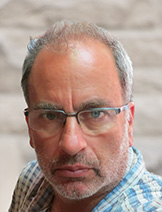 Contact Information
Contact Information Office: BGS 2066
Phone (Office): (519) 661-2111 x 81467
Fax: (519) 661-3935
Email: gtaylor8@uwo.ca
Evolution, Ecology and the Biomechanics of Animal Design
Research and Teaching
My research interests focus primarily on the interface between evolution, ecology, and biomechanics. In general, I am curious about constraints in design that might set the upper limits to performance for such activities as jumping, running, flying and biting. In this context, I have used the decapod claw (crabs and lobsters) as a model system. Decapod claws are exceptionally strong ‘biting’ devices used in the subjugation of hard-shelled prey; although simple in design, they are one of the strongest biting devices observed in any animal group. This is not surprising, considering that durophagous crabs and lobsters have been hunting hard-shelled prey, such as snails and clams, for millions of years. Indeed, this system provides one of the best examples of a coevolutionary arms-race between predator and prey. I have documented ecologically significant variation in claw performance and design among six species of Cancer crabs, which live on the Pacific Northwest coast (Bamfield Marine Station). I have also examined variation in claw performance and design at the population level, documenting rapid shifts in performance attributes in an invasive species. This work was conducted on the invasive green crab, Carcinus maenas, which now has a world-wide distribution and a well-documented invasion history in the Gulf of Maine. My research integrates approaches from diverse fields, including morphometrics, physiology, and development within an evolutionary context, to understand how animals are ‘designed’.
Degrees and Institutions
- PhD (University of Alberta)
- MSc (Queen’s University)
- BSc (Trent University)
Teaching
- Biology 3220Z - Field Studies in Biology
- Biology 3229G - Animal Diversity: Ancestral Vertebrates to Jellyfish
- Biology 4223F - Marine Environments
- Biology 4920F/G - Seminar in Biology
Raymond Thomas
Professor and Western Research Chair
Scientific Director: Biotron Experimental Climate Change Centre
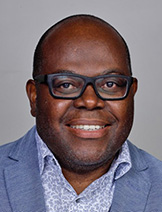 Contact Information
Contact Information Office: MSA 3203
Phone (Office): (519) 661-2111 x 81040
Lab: NCB 427
Lab phone: (519) 661-2111 x 86470
Fax: (519) 661-3935
Email: rthoma2@uwo.ca
Lipid metabolism and food systems
Research WebsiteResearch and Teaching
Lipid Metabolism
- Lipid metabolism in agriculture and functional foods production in northern or boreal climate
- Development of improved or novel lipid omics methods as tools to better evaluate the role of lipid metabolism in human health and lipid mediated plant immunity or plant stress biology
- Lipid metabolism in neurobiology and nootropic foods health benefit validation
- Lipid metabolism in environmental stress biology /boreal forest reclamation
- Lipid chemical imaging, modeling and chemometrics
- Validation of the health benefits of functional or nootropic foods or ingredients in cell and animal models of brain health
Food Systems
- Convert or repurpose terrestrial and marine based food biomass into sustainable, resilient, circular, adaptive food systems in rural, coastal, remote and indigenous communities
- Functional Foods/Plant based Foods and Nootropic foods Innovation
- Development of improved Lipid Bioinformatics Approach/Novel Lipidomics Workflow or Methods
- Foodomics/Food Metabolomics/Food as Medicine/Food Informatics/Food Arts
- Brain Health/Neurolipidomics/Short chain fatty acids induced brain stress
- Grill food safety, nutritional, organoleptic and functional qualities
- Novel Green or food grade solvent systems
- Application of Lipid Bioinformatics as a decision support tool in Boreal Agriculture/Ecosystem health
- assessment/Climate change risks assessment/ improved nutrient or food security
Degrees and Institutions
- Post Doctoral Fellowship Western University, Biology — London, ON
- Doctor of Philosophy, Biology Western University — London, ON, Canada
- Master of Science, Horticulture University of Minnesota — St Paul, MN, USA
- Bachelor of Science (Hons), Agriculture Lincoln University — Jefferson City, MO, USA
Certificates
- Certificate, Project Management MITACS/Western University- London, ON, Canada
- Certificate, Cellular Imaging of Lipids European Molecular Biology Organization- Italy
- Certificate, Bioinformatics for Principal Investigator European Bioinformatics Institute- University of Cambridge, UK
- Certificate, Modelling Molecular Mechanisms European Bioinformatics Institute- University of Cambridge, UK
Teaching
- No courses listed yet
Greg Thorn
Associate Professor and Associate Chair (Undergraduate)
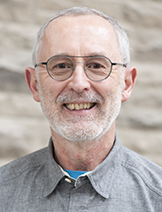 Contact Information
Contact Information Office: BGS 3047
Lab: BGS 3057
Phone (Office): (519) 661-2111 x 88647
Fax: (519) 661-3935
Email: rgthorn@uwo.ca
Undergraduate Chair: biougcha@uwo.ca
Fungal Ecology and Systematics
Research WebsiteResearch and Teaching
The long-term research goal of the Thorn lab is to explore the relationships between phylogeny and function - evolution and ecology - in the fungi. Fungi are critically important in most terrestrial ecosystems, providing mineral nutrients to vascular plants through mycorrhizal symbioses and decomposing plant remains to recycle both organic and inorganic nutrients through the ecosystem. Fungi form networks of microscopic filamentous cells, and interact with all of the organisms - ranging from bacteria to mammals and plants - that share their physical environment. Although processes, such as nutrient cycling, that are driven by fungi are well recognized, almost nothing is known about which specific organisms are doing the job or how their interactions with other organisms affect the outcome of the process. A hypothesis underlying this work is that species are unique, multiplex organisms which can only be thought of as functionally redundant in terms of their ability to carry out a single biochemical reaction under laboratory conditions. Different species of fungi may indeed share this biochemical capacity, but each has a unique suite of other biochemical capacities and inter-organismal interactions that makes it unique in the natural environment.
Major research areas in Thorn’s lab include phylogeny of fungi inhabiting soil, litter and wood, discovery and description of fungal diversity, and determining the effects of disturbance, including agriculture, climate change and forestry, on fungal diversity and ecosystem function.
Degrees and Institutions
- PhD (University of Toronto) 1991
- MSc (University of Guelph) 1985
Teaching
- Biology 3218G - Biology of the Fungi
- Biology 3220Z – Tropical Biodiversity field course in Ecuador (with Dr Nina Zitani)
- Biology 3404F – Evolution of Plants
Alexander Timoshenko
Associate Professor, Cross Appointment with Oncology, Schulich School of Medicine & Dentistry
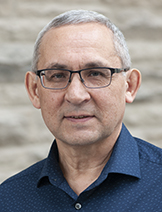 Contact Information
Contact Information Office: BGS 3032
Phone (Office): (519) 661-2111 x 88900
Fax: (519) 661-3935
Email: atimoshe@uwo.ca
Cell Biology and Glycobiology
Research WebsiteResearch and Teaching
The main areas of my research interests include the following: Biological Activity and Functions of Animal and Plant Lectins, Glycobiology, Molecular Mechanisms of Cellular Stress Responses, Cellular Signaling, Reactive Oxygen Species, Redox-Regulation of Cellular Functions, Cancer Biology, Lymphangiogenic Factors, Innate Immunity.
Degrees and Institutions
- Doctor of Science, Biophysics, Belarusian State University, Minsk, Belarus
- Candidate of Science (PhD), Biophysics, Belarusian State University, Minsk, Belarus
- Specialist Diploma, Physics, Belarusian State University, Minsk, Belarus
Teaching
- Biology 3326F/G - Cell Biology Laboratory
- Biology 3355A/B - Molecular Cell Biology of Stress
Liana Zanette
Professor & Faculty Scholar
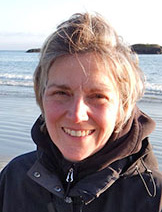 Contact Information
Contact Information Office: Collip 207
Phone (Office): (519) 661-2111 x 88317
Phone (Lab): (519) 661-2111 x 88316
Fax: (519) 661-3935
Email: lzanette@uwo.ca
Wildlife Population, Conservation, and Behavioural Ecology
Research WebsiteResearch and Teaching
We work on fear. Particularly, how the fear of predators alters the brain, behaviour, and physiology of individuals in addition to population dynamics and community structure. We examine how fear applies to conservation, biodiversity and management, and its implications for human mental health including Post-Traumatic Stress Disorder. We conduct manipulations in the field, in semi-natural conditions, and the lab to better understand how fear functions in nature. We work on a variety of mammalian and avian species in Canada and abroad from apex predators (e.g. African lions, cougars, bears) to meso-carnivores (e.g. raccoons, European badgers), herbivores (e.g. impala, deer), small mammals (e.g deermice), and birds. We have published some of the seminal empirical papers on fear effects in wildlife, including the important role that fear of the human ‘super predator’ plays. We have access to excellent infrastructure for fieldwork of all sorts, including field sites in Canada, the U.S., and South Africa, in addition to unparalleled lab resources at the Advanced Facility for Avian Research and our Large Outdoor Aviaries for semi-natural conditions at Western.
Degrees and Institutions
- PDF Killam – Zoology, University of British Columbia, 2001
- PhD Ecosystem Management & Zoology, University of New England (Australia), 2000
- MSc Biology, Queen’s University, 1991
- BSc Psychology, University of Toronto, 1988
Teaching
- Biology 3440A - Ecology of Populations
- Biology 3442F – Conservation Biology

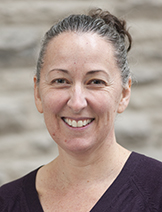 Contact Information
Contact Information 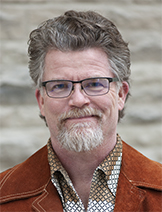 Contact Information
Contact Information  Contact Information
Contact Information 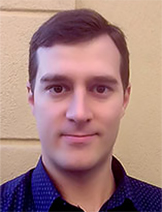 Contact Information
Contact Information 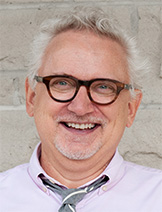 Contact Information
Contact Information 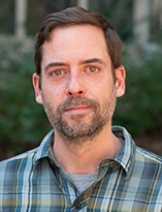 Contact Information
Contact Information 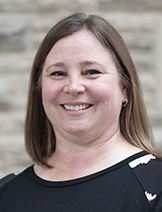 Contact Information
Contact Information  Contact Information
Contact Information 